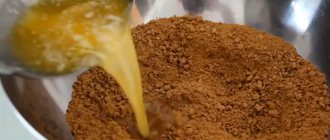How to cook properly
The shelf life of boiled eggs will depend on what method of preparation was used. The duration of the brew is of great importance.
If the product has been heat treated for 8 - 12 minutes, its structure will change. Disinfection will also be carried out, which consists of destroying dangerous microflora, including bacteria that cause salmonellosis. The product can be stored for up to 4 days after this heat treatment.
The duration of heat treatment affects the shelf life of the product and its consistency. If the yolk remains completely or partially uncooked (poached, soft-boiled), that is, the egg was boiled for 3 - 5 minutes, it can be stored for less time. Such products should be used no more than after 2 days, even if kept in the cold.
Cooking for up to 7 - 9 minutes allows you to get an egg “in a bag”. At the same time, the yolk becomes denser, but still does not completely harden. It is consumed no later than 2-3 days after cooking, regardless of storage conditions.
Storing boiled eggs without refrigeration
There are situations when using a refrigeration unit to store food is impossible. Very often this is due to the conditions of activity and stay. At normal room temperature, a boiled chicken egg spoils after two to three days. In order for it to be stored longer when boiled, even in this case, certain rules must be followed.
Bacteria enter through pores or cracks in its shell. Therefore, it is necessary to avoid damaging the shell, and close the pores by treating with vegetable oil. In this way, you can add another four to five days to the shelf life of the product.
It is not recommended to keep the cooked product in the heat. On the road, it must be consumed within twelve hours. You can buy special cooling containers in stores. They can be used even outdoors at high temperatures. However, they need to be protected from direct sunlight.
Advice:
You should not pack boiled eggs in plastic, this will only speed up the rotting process. If packaging is necessary, it is better to use aluminum foil or paper for these purposes.
After cooking and cooling, it is important to dry the shells thoroughly. Excess moisture promotes the growth of microbes and the product should not be left in water either.
The rotting process is usually accompanied by a characteristic unpleasant odor. If it appears, consumption is prohibited. This may also be indicated by a change in the hue of the protein to gray or bluish.
Video: How long can eggs be stored without refrigeration?
Storage conditions
How long boiled eggs can be stored depends on a number of reasons. Firstly, initially you should use only a fresh product (no more than 35 days from the time of birth). It is possible to understand the freshness of an egg after boiling. When the shell is difficult to separate from the protein, this is an indicator of freshness.
The integrity of the shell is also very important. If it is cracked or has areas with frozen protein leaking out during the boiling process, it will be much less possible to store such a product. To prevent this from happening, you need to select high-quality eggs for cooking, with a clean surface and without cracks or dents in the shell.
If they were previously on the refrigerator shelf, you need to give them the opportunity to remain at room temperature for about 20 minutes before cooking. It is known that cracks are caused by a sharp temperature contrast. The same effect should be expected if hot eggs are placed directly from boiling water into a container of cold water.
How can it be stored?
The extent to which the product will remain nutritious and tasty for the next use largely depends on where exactly the boiled beets will be stored.
In room conditions
Immediately after cooking, the beet is removed from the water, slightly dried and, without removing the peel, placed in a dry bowl and covered tightly with a lid. Ceramic bowls and glass coated with enamel are ideal for storage . You should not use plastic dishes (the coloring pigment, eating into the plastic, leaves indelible stains on the walls).
There is no need to rush to peel and cut boiled beets. In the peel, the whole root vegetable retains its juiciness and taste much longer than in sliced form.
In a refrigerator
The best packaging for storing boiled beets in the refrigerator is a plastic bag.
Algorithm of actions:
Vegetables are boiled, cooled, peeled if necessary, cut into cubes or bars.- A plastic bag filled with boiled beetroot is hermetically sealed (tied in a knot, sealed with tape), and small holes are made in the walls for ventilation.
- The prepared bags are placed on the shelves of the refrigerator.
It is convenient to store whole boiled beets in the refrigerator, wrapped in cling film. In this form, the root crop does not become chapped and retains its nutritional value for as long as possible.
Alternatively, boiled beets can be stored in a container.
Algorithm of actions:
- Boil the vegetables and let cool at room temperature.
- The unpeeled beet is placed in a container (if desired, the root vegetable can be peeled and cut into pieces).
- The container is tightly closed with a lid and stored in the refrigerator.
It’s good if there are air valves in the lid of the container; when placing them in the refrigerator, they are left open. The bottom of the plastic container is covered with a paper kitchen towel (it absorbs beet juice, thereby preventing the product from rotting).
This video will show you how to store boiled beets in the refrigerator:
In the freezer
In order for boiled beets to remain juicy and tasty after freezing, it is necessary to properly organize the process of placing the product in the freezer:
- Peel the boiled root vegetable, dry with paper napkins, cut into cubes or strips.
- Place the prepared vegetables in portions into thick plastic bags with a zip fastener and place them in the freezer drawer.
To prepare cold appetizers and salads, boiled beets are defrosted at a temperature of 2-4°C in the refrigerator. Boiled beet can be added frozen to hot dishes, soups, and stews.
It is strictly forbidden to defrost semi-finished vegetable products in hot water, near heating appliances!
This video will show you how to store boiled beets in the freezer:
Storing peeled eggs
When the shell does crack during boiling or during sudden cooling, such products should be used first. Storage of peeled eggs or those whose shells have burst cannot last long. They retain quality for no more than 1-2 days in the cold and up to 12 hours in the heat.
Storing hard-boiled eggs with damaged or unshelled eggs is possible for 12 and 24 hours, respectively, if they are kept in the cold during this time. If you leave the product in a warm place, its shelf life is reduced by 2 times. And when the heat treatment process took no more than 2-4 minutes, the shelf life cannot be longer than 8 hours, under any conditions.
When an unpleasant odor is noticeable while peeling boiled eggs, they can no longer be used, regardless of how long they have been stored. It is also worth disposing of products that have a bluish or grayish color, so as not to cause serious harm to your health.
Egg storage factors
One of the main conditions for long-term preservation of a product is its cooling. Room temperature negatively affects the quality of stored poultry products, regardless of whether they are fresh or heat-treated. The latter case is due to the fact that the product cannot remain without cooling for a long time.
An important component is the time of egg production. If it was demolished more than one month ago, it is not recommended to cook such products.
Freshness is determined by removing the shell. Easy cleansing of the surface shell indicates that the testicle is good, difficult - the opposite.
The absence of deformation on the shell will also prolong the freshness and quality of the product.
To prevent a boiled egg from spoiling for a long time, it is advisable to adhere to the following recommendations:
- Select clean eggs with intact shells.
- They must warm up to room temperature before processing. The opposite causes cracking.
- After thermal exposure, place on a dry cloth to dry.
- Have a storage container.
If the hard shell is damaged, the product is consumed after 2-4 days; room temperature reduces the period to 12 hours.
Cold storage
The longest shelf life of boiled eggs in the shell will be if you send them to a cold place. Before this, each of them is cooled and wiped dry with napkins.
It should be remembered that moisture promotes the development of pathogenic microflora.
Boiled eggs can be stored in the refrigerator, pre-packaged in an airtight glass container or covered plastic container. Such storage prevents the influence of all kinds of odors on the products.
The optimal storage temperature for eggs should be between +2°C -+4°C. It is best to place the container next to the freezer, where it is coolest. You should not place food on the door for storage due to constant temperature changes every time it is opened.
The shelf life of boiled eggs in the refrigerator is about 2 weeks. But if they are already cleaned, this time is reduced to 12-24 hours.
Boiled eggs stored in plastic bags spoil quickly. This must be taken into account when going on the road. It is better to place them in a paper bag or food container.
Storing soft-boiled eggs is not recommended for more than 2 days, even in the cold. In warm conditions, this time will be reduced to 12 hours, and when the product has a damaged shell - to 8.
How to extend the shelf life of boiled eggs
At least 3 simple steps will help extend the shelf life of boiled eggs:
Step 1 – hard boil. When the water boils, cook for 10 minutes. During this time, the shell will be cleansed of harmful microorganisms.
Step 2 – cool the eggs in cold water, wipe dry.
Step 3 - after cooling, place the eggs in plastic containers or enamel containers with a lid, place deep in the refrigerator, and not put in compartments in the doors. When opening the refrigerator, a temperature drop occurs and the eggs quickly spoil.
Freezing
It is not advisable to keep whole boiled eggs in the freezer. This will not preserve the dense structure and beneficial properties of the product. But when freezing is necessary, only the yolks are sent to the freezer, which can then be used as a filler for various dishes.
Boiled yolk can be stored in the freezer for up to 12 months.
Storing washed chicken eggs and their shelf life
How long do washed specimens last?
Sometimes eggs go on sale contaminated, so buyers tend to wash them with water or special disinfectants before putting them in the refrigerator. But we must remember that the safety of such products will be much lower than that of unwashed products.
This happens because eggshells have a protective film, thanks to which they last longer, and when washed, it is washed off.
Therefore, a washed egg will last much less than an unprocessed one.
Keep warm
As we already know, the optimal storage temperature for boiled eggs is from +2°C to +4°C. But it is not always possible to create such conditions. At temperatures up to +20°C, hard-boiled eggs can maintain quality for up to 3 days.
Storing boiled eggs in a warm place will be very short-lived if they remain liquid inside. A soft-boiled product can remain usable for up to 20 hours. If the shell has been cleaned, this time will decrease by 2 times.
Hard-cooked eggs should be used no later than 12 hours after boiling if they are kept in a room with a temperature above +20°C.
Shelf life of different types of meat
The shelf life depends not only on the amount of salt and cooking time, but also on the type of product. Boiled and dried foods may be suitable for consumption for a different number of days:
- Boiled meat can be stored in the refrigerator for two days. If it is a lean variety, then you can keep it for up to six days.
- Smoked meat products can be stored for a long time. They can be stored in the refrigerator for up to 10 days. Smoked meats are not frozen as they become watery. If it is not possible to keep smoked meat in the refrigerator, it is placed in a cool place where the temperature does not exceed + 18 degrees. In such conditions it remains suitable for up to two days.
- Dried meat has the longest shelf life. This is an old way of cooking. This is how food was preserved in cellars. The jerky can remain edible for up to six months if kept in the refrigerator.
You can keep the baked chicken either whole or in separate parts for up to three days. The temperature should be no more than 5 degrees. To prevent chicken meat from absorbing foreign odors, it is recommended to keep it in a container with a closed lid. And about fried chicken, read How long does fried chicken last in the refrigerator?
and here read How to understand how long boiled chicken can be stored in the refrigerator
How long does fried chicken last in the refrigerator?
How long does jellied meat last?
Jellied meat, aspic, jelly are all meat dishes cooked in boiled broth. It is usually prepared in large quantities, but it is not always eaten immediately, so you need to know how to preserve it.
You need to store jellied meat in an enamel or ceramic container with a tight-fitting lid so that the product does not absorb foreign odors.
Quail egg
It is allowed to store boiled quail eggs in a whole shell for no longer than 1 week in the cold, and 10 - 12 hours in the heat. If there is damage on the surface of the product, this time is reduced to 3 days in the cold.
Boiled quail eggs should be stored in paper bags or plastic containers with a lid in the coolest place in the refrigerator.
The shelf life of boiled eggs in shell and without it differs significantly. Therefore, if you have to delay using this product, do not clean it first. When cooking, you should not expose it to sudden changes in temperature, so as not to injure the shell, otherwise boiled eggs can be stored for even less time.
Storage of chicken eggs according to GOST
Recommended storage periods according to GOST. The shelf life of food products in Russia is determined by GOST. According to this document, eggs can only be stored for 3 months at a temperature of 0-20 degrees Celsius and an air humidity of more than 85 and less than 88%.
But there are a number of categories of egg products whose shelf life is significantly lower:
- Dietary products – no more than a week.
- Canteens – 25 days.
- Washed – 12 days.
When eggs go on sale from wholesale producers (their poultry farms, etc.), the farmer is required to put a special stamp on each of them, indicating the date and time of release.
Some details below.
Why is it important to monitor shelf life?
Eggs are one of the few products that contain an incredible amount of beneficial vitamins and rare microelements responsible for development and growth. In addition, they have been very widely used in cooking since ancient times, and often act as the main ingredient. Without eggs, it will be completely impossible to prepare baked goods, various sauces and many other complex dishes.
And since families most often buy a couple of dozen of them at once, every young lady should know how to properly store eggs in the refrigerator, both raw and boiled. After all, if you eat a spoiled product, you can not only easily get sick, but also get seriously poisoned. Of particular danger in this case is homemade mayonnaise and eggs beaten with sugar.










